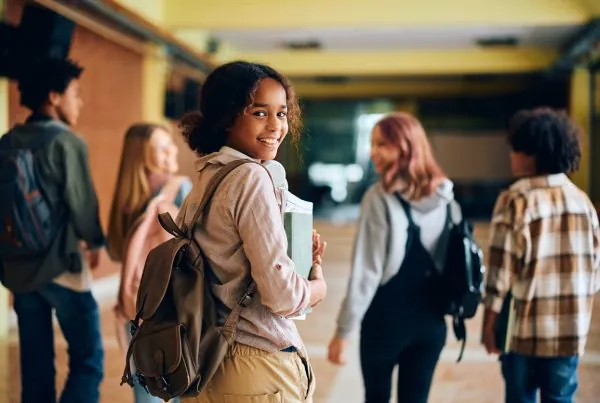Adolescence is a period filled with growth, change, and discovery, but it can also be overwhelming.
Between academic pressures, shifting social circles, and the stress of figuring out their place in the world, many teens struggle to manage their emotions in healthy ways. When challenges seem too overwhelming, some individuals turn to maladaptive coping skills, strategies that may provide temporary relief but often create more problems over time.
Understanding the meaning of maladaptive coping skills can help parents identify when their teen is struggling and provide the right kind of support. Rather than leading to resilience, these patterns can increase distress, strain relationships, and contribute to long-term risks such as self-harm or substance use. Below are five key warning signs to watch for, along with compassionate coping strategies to start the conversation.
What Are Maladaptive Coping Skills?
Before diving into the warning signs, it helps to clearly define what we mean. A maladaptive coping skill is a behavior that helps someone avoid or numb emotional pain in the short term, but prevents them from effectively dealing with the root issue. These behaviors often feel comforting at first, yet they interfere with healthy growth and can worsen mental health over time.
Common maladaptive coping skills examples include:
-
Risky or impulsive behaviors
When thinking about the meaning of maladaptive coping skills, it’s important to remember that these aren’t signs of weakness or failure. They’re signals that a teen is overwhelmed and trying – imperfectly – to manage.
Recognizing this can shift how parents approach the issue, allowing them to do so with compassion rather than judgment.
1. Withdrawing From Friends and Family
One of the earliest warning signs of maladaptive coping skills is social withdrawal. If your teen is spending more time alone in their room, canceling plans with friends, or showing little interest in family activities, it may be a signal that they are using avoidance as a way to cope.
While every adolescent needs some privacy, a sudden or dramatic shift in social behavior often reflects underlying struggles. For example, avoiding loved ones can reduce opportunities for support, leaving the teen even more isolated. Withdrawal can also create space for harmful maladaptive coping skill patterns like binge-scrolling on social media or engaging in self-harm.
2. Noticeable Changes in Mood or Personality
All teens experience mood swings, but a sharp change in personality, such as increased irritability, hopelessness, or emotional numbness, can indicate a reliance on maladaptive coping skills.
Parents may notice that their once outgoing child now seems angry, cynical, or disinterested. Alternatively, they may appear unusually calm, which can sometimes mask deeper distress. Remember: emotions that seem out of proportion or consistently flat are often signs of internal struggle.
These shifts can be connected to a range of maladaptive coping skills, such as using substances to self-medicate, numbing through endless hours online, or channeling pain into self-destructive outlets.
3. Declining Academic Performance
A teen who once enjoyed learning but suddenly shows a drop in grades, frequent absences, or disciplinary issues at school may be relying on maladaptive coping skills. Academic decline is rarely about laziness. More often, it reflects difficulty focusing due to stress, depression, or unhealthy coping patterns.
For instance, using substances to escape pressure can impact memory and motivation. Likewise, staying up late glued to social media feeds, another maladaptive coping skill, leaves little energy for schoolwork. Identifying this pattern early can prevent further setbacks and help teens develop healthier habits.
4. Physical Complaints Without Clear Causes
The body often speaks when words fail. Teens using maladaptive coping skills may experience frequent headaches, stomachaches, or other unexplained physical symptoms. These discomforts can be stress-related, signaling that their emotional struggles are being expressed physically.
Parents should be cautious not to dismiss these complaints. Instead, they should consider whether the physical distress might be connected to hidden emotional pain or unhealthy behaviors. For example, substance misuse or disordered eating – both common maladaptive coping skills examples – can have direct physical effects.
5. Engaging in Risky or Self-Destructive Behavior
Perhaps the most urgent warning sign is when a teen turns to dangerous activities such as cutting, reckless driving, unsafe sexual activity, or substance abuse. These behaviors often emerge as desperate attempts to manage overwhelming feelings.
When parents see these patterns, it’s essential to recognize them as cries for help rather than deliberate defiance. These types of maladaptive coping skills can quickly escalate, leading to serious harm. Addressing them with empathy is crucial to opening the door for safer, healthier alternatives.
How to Talk to Your Teen About Maladaptive Coping Skills
Recognizing the warning signs is only the first step. The next challenge is finding a way to talk about them. Conversations about sensitive topics like cutting, social media addiction, or substance use can feel intimidating, but they’re vital.
Here are strategies that align with the compassionate, non-judgmental approach teens need:
Choose the Right Time and Place
Find a calm, private setting where your teen feels safe. Avoid launching into the discussion in the heat of an argument or when emotions are high.
Lead With Curiosity, Not Criticism
Instead of accusing, ask open-ended questions: “I’ve noticed you’ve been spending a lot of time alone, what’s been going on for you?” This shifts the tone from confrontation to care.
Validate Their Feelings
Even if you don’t agree with their choices, acknowledge the pain they’re feeling. Saying, “I can see you’re going through something really hard,” helps teens feel understood rather than judged.
Offer Support, Not Immediate Solutions
It can be tempting to jump in with fixes, but listening often matters more. Offer reassurance that you’re on their side and that together, you’ll find better ways to cope.
When Professional Support Is Needed
Sometimes, a teen’s struggles with maladaptive coping skills require more than parental support. If you notice self-harm, substance abuse, or significant changes in functioning, it’s important to seek professional help.
This is where Visions can make a difference. As a trusted program specializing in adolescent mental health, Visions provides compassionate, evidence-based care for issues such as cutting, substance use, and social media addiction. With a focus on holistic healing and family involvement, Visions helps teens replace destructive patterns with healthier coping strategies, while giving parents tools to support long-term recovery.
A Hopeful Path Forward
Understanding the meaning of maladaptive coping skills enables parents to recognize the subtle signs of teen distress better. From withdrawal to risky behavior, these warning signs shouldn’t be ignored, but they also don’t mean hope is lost. Teens are resilient, and with the right support, they can learn adaptive coping strategies that empower them to thrive.
By watching for signs, opening compassionate conversations, and turning to resources like Visions when necessary, parents can help their teens move beyond harmful maladaptive coping skill patterns.
With patience, understanding, and guidance, teens can discover healthier ways to handle life’s challenges, and families can grow stronger together.
Take the First Step Toward Healthier Coping
If you’ve noticed your teen struggling with maladaptive coping skills, you don’t have to face it alone. Visions offers a safe and compassionate environment where teens and their families can start the journey toward healing. Our team specializes in helping young people replace harmful behaviors with positive, lasting tools for growth.
Reach out to Visions today to learn more about our programs and how we can support your family. Together, we can guide your teen toward healthier coping skills, greater resilience, and a brighter future.









